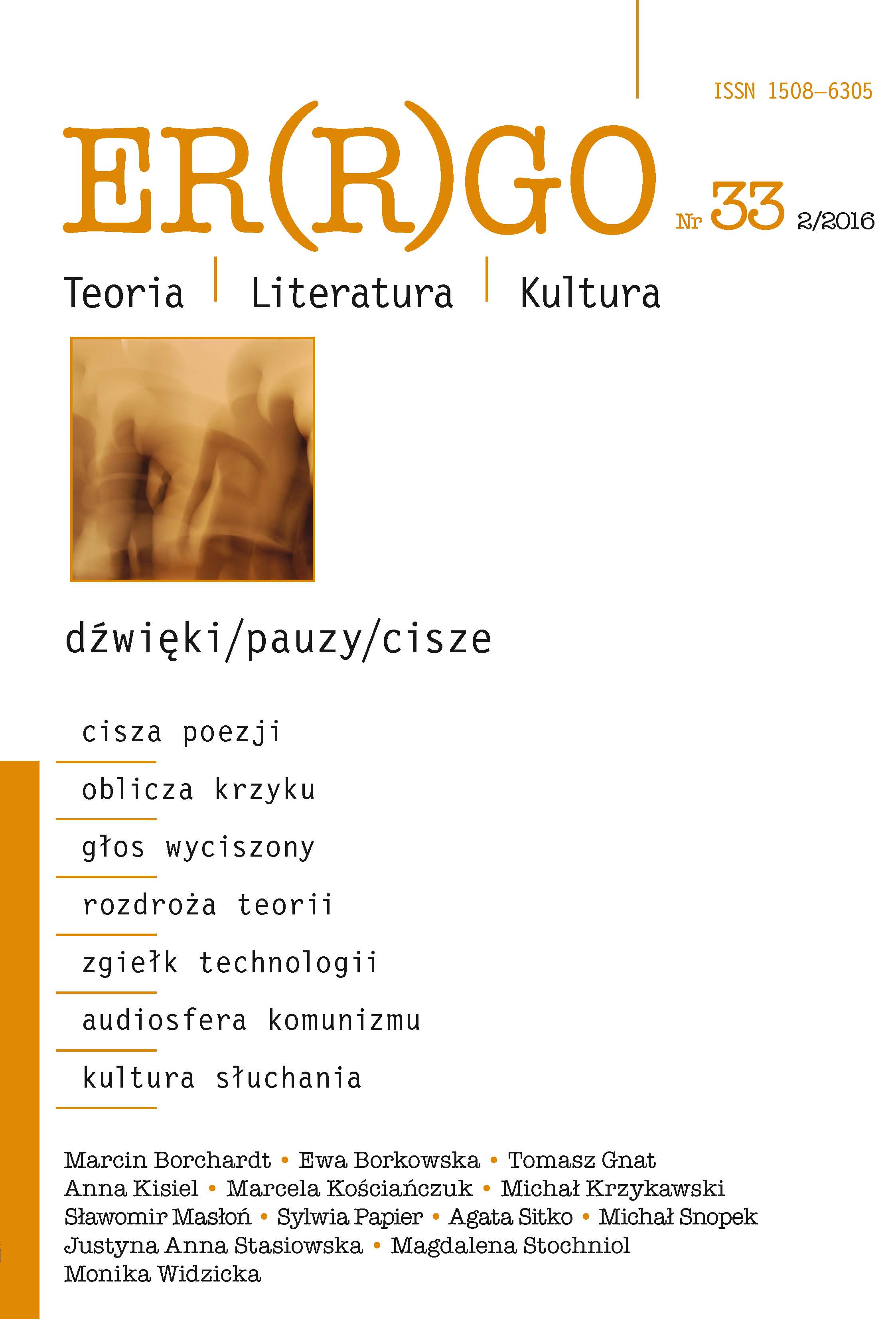Przekłady: Przedmioty dźwiękowe i produkty dźwiękowe: standardy nowej kultury słuchania w pierwszej połowie XX wieku
Translations: Sound Objects and Sound Products: Standardising a New Culture of Listening in the First Half of the Twentieth Century
Author(s): Alexandra HuiContributor(s): Justyna Stasiowska (Translator)
Subject(s): Language and Literature Studies, Fine Arts / Performing Arts, Music, Studies of Literature, Comparative Study of Literature
Published by: Wydawnictwo Uniwersytetu Śląskiego
Summary/Abstract: I develop the psychological underpinnings of environmental music towards an understanding of how the goals of cognitive and behavioural psychologists contributed to a new kind of listening at the beginning of the twentieth century. I begin with an examination of nineteenth-century concerns about both the physical and psychological effects of music and fraught debate among experimental psychologists of the role of musical expertise in the laboratory. These concerns were, I argue, rooted in the assumption of a direct, corporeal connection between the generation and reception of music, usually bound within a single, individual body. In the twentieth century, new technology liberated the listener from a temporallyand geographically-bound experience of music. The Tone Tests, Re-Creation Recitals, and Mood Change “parties” of Thomas Edison and the psychologist Walter Bingham show that recording technology allowed for a normalisation and standardisation of listening not previously possible in the music halls and laboratories of the nineteenth century. Rather paradoxically, since it also made music more accessible to the individual listener, recorded music, mobilised by industrial psychologists and record companies alike, created a new sound experience actively designed for the lowest common denominator of mass listening. It also contributed to the cultivation of a new practice of mass listening. The new mass listening practice presents broader questions about the definition of music and its functional role – If the function of music is to be ignored, is it still music?
Journal: ER(R)GO. Teoria-Literatura-Kultura
- Issue Year: 2016
- Issue No: 33
- Page Range: 135-150
- Page Count: 16
- Language: Polish

